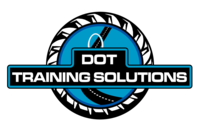TRAIN WITH THE BEST
cargo tank training classes
Enrolll in Cargo Tank Training today. Limited spots available.
ENROLL IN TRAINING
Limited spots are available. Sign up today!
UPCOMING CARGO TANK TRAINING INSPECTION classes
Now Enrolling
Now Enrolling
Now Enrolling
overview
CARGO TANK TRAINING TOPICS
Browse our selection of core topics related to Cargo Tank Training.
COURSE DURATION – 12 HOURS
Prerequisites: Students must have a fundamental working knowledge of cargo tanks and hazardous materials regulations.
Description: The Cargo Tank Registered Inspector course is designed to provide participants a comprehensive understanding of the regulations and requirements associated with cargo tank inspections that fulfill training requirements as specified in Part 172.704 of the hazardous materials regulations. Students begin by receiving training on general hazardous materials. The course progresses through each type of cargo tank, inspection type and culminates with hands on training to re-enforce classroom lessons. Throughout the training, participants will gain a concentrated insight into the specific regulations applicable to conducting cargo tank inspections as well as specific cargo tanks that require inspection. This course offers a platform for participants to ask company- specific questions and seek guidance on any unique challenges they may face in relation to cargo tank inspections.
FYI
A cargo tank is bulk packaging that is intended to mainly be used for the carriage of liquids, gases, solids, or semi-solids. They are used to transport hazardous materials and come in both large and small designs.
Each cargo tank that is used to transport hazardous materials must be an authorized package.
Additionally, to qualify as an authorized package, each cargo tank must conform to the applicable requirements specified in the HMR parts 173 for specific laden material for the specific cargo tank where a DOT specification cargo tank is required, an applicable specification in effect on the date initial construction began.
It should be noted that a specification cargo tank is an MC306, MC307, MC312, DOT406, DOT407, DOT412 and an MC330/331.
A Designed Certified Engineer is an individual who is registered with the Department of Transportation, who has the knowledge and ability to perform stress analysis of pressure vessels. He determines whether a cargo tank design/construction meets the applicable DOT specifications. A DCE also meets the knowledge and ability requirements as follows:
1. Has an engineering degree and one year of work experience in cargo tank structural or mechanical design;
2. Is currently registered as a professional engineer;
Has at least three years of experience in performing the duties of a DCE prior to September 1, 1991. (171.8 in the HMR)
Registered Inspectors are individuals who perform testing and inspections for DOT specification cargo tanks as prescribed in Parts 180.409 and 171.8. Some Registered Inspectors work for cargo tank testing facilities, while others are registered as mobile testers. Requirements include a High School Diploma/GED and 3 years of actual work experience relating to performing DOT Specification testing/inspection of cargo tanks;
* Grandfather Clause – 3 years of performing Cargo Tank testing/Inspections (Prior to September 1, 1991);
* You need 3 years of actual apprentice type experience working with a Certified Registered Inspector at a Certified CT Shop to become a Certified Registered Inspector. (171.8; 180.409 in the HMR)
person who knowingly violates a requirement of the Federal hazardous materials transportation law, an order issued thereunder or a special permit or approval issued applicable to the transportation of hazardous materials or causing of them to be transported or shipped is liable for a civil penalty of not more than $78,376 for each violation, except the maximum civil penalty $182,877 if the violation results in death, serious illness, or severe injury to any person or substantial destruction of property. (107.329 in the HMR).
Here are some examples of civil penalties set forth by PHMSA in making initial baseline determinations for civil penalties for cargo tank motor vehicles:
* No records- $5,000;
* Failure to have a cargo tank tested or inspected (e.g., visual, thickness, pressure, leak proof) -$8,000 and up;
* Failure to mark a cargo tank with test and inspection markings $600 each item;
* Constructing a cargo tank or cargo tank motor vehicle not in accordance with special permit or design certification- $13,500.
It should be noted that these are just some of the civil penalties that could result if a CT Shop is found to be in violation of cargo tank testing/inspections. See Appendix A to subpart D of part 107 in the HMR.
DOT Specification Tanks require specific tests/inspections at designated intervals. These tests/inspections are: External Visual Inspections, Internal Visual Inspections, Lining Inspections, Leakage Test, Pressure Test, and Thickness Test. Testing dates vary depending on the type of test being conducted. Only a qualified Registered Inspector is able to administer these tests.
Once a cargo tank has been inspected, the specified markings, along with the month and year that the test was performed, must be applied on the tank. Markings must be applied near the specification plate, or anywhere on the front head:
V – for external visual inspection and test;
I – for internal inspection;
P – for pressure test;
L – for lining inspection;
T – for thickness test;
K – for leakage test;
K – EPA27 for a cargo tank;
We do! Give us a call to learn more about our discount special 866.296.7394.
